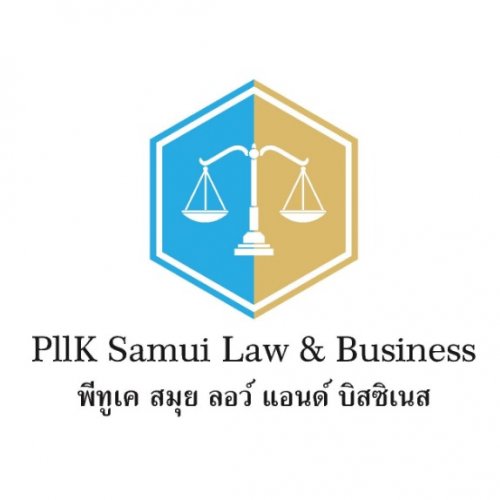Best Communications & Media Law Lawyers in Surat Thani
Share your needs with us, get contacted by law firms.
Free. Takes 2 min.
List of the best lawyers in Surat Thani, Thailand
About Communications & Media Law in Surat Thani, Thailand
Communications & Media Law in Surat Thani, and more broadly in Thailand, encompasses the legal framework governing communications technologies, broadcasting, advertising, censorship, and digital media. This branch of law ensures that media operates within the legal boundaries while protecting freedom of expression and privacy. With the rapid advancement of technology, this area has grown significantly, requiring constant updates to regulations. In Surat Thani, local regulations often align with national policies but may include specific considerations pertinent to regional culture and commercial activities.
Why You May Need a Lawyer
There are several situations where individuals or organizations may require legal help in Communications & Media Law:
- If you're facing issues with content censorship or seeking to understand regulations concerning digital content distribution.
- When dealing with defamation cases arising from online or broadcast content.
- If you're navigating advertising laws to ensure compliance in marketing campaigns.
- For guidance on intellectual property rights and protections pertinent to media productions.
- Clarifications on privacy laws and data protection in communications technology.
- Assistance in negotiating and drafting contracts related to media ventures, including publishing or broadcasting rights.
Local Laws Overview
Surat Thani adheres to Thailand's wider legal statutes on communications and media, but with local modifications to best serve regional needs. Key aspects include:
- Broadcasting regulations ensuring fair competition and standards, managed by the National Broadcasting and Telecommunications Commission (NBTC).
- Strict censorship rules aimed at protecting cultural, moral, and societal values, particularly in media content.
- Data privacy laws providing safeguards for personal information in line with the Personal Data Protection Act (PDPA) of Thailand.
- Defamation laws that are stringent, particularly concerning digital and public platforms.
- Advertising standards that emphasize truthful representation and protect consumer interests.
Frequently Asked Questions
What constitutes defamation in Thailand?
Defamation in Thailand involves making false statements that harm another person's reputation. If it's electronic, the Computer Crimes Act may also apply.
Are there any restrictions on online advertising?
Yes, online advertising must comply with consumer protection laws, ensuring honesty and absence of misleading claims.
What are the penalties for breaching censorship laws?
The penalties can range from fines to imprisonment, depending on the severity and intent of the breach.
How does the PDPA affect businesses in Surat Thani?
Businesses must protect personal data, limit its use, and ensure consent under the Personal Data Protection Act to avoid penalties.
Is compliance with NBTC required for digital broadcasters?
Yes, digital broadcasters must comply with NBTC's licensing and content regulations to legally operate.
Can I negotiate broadcast rights in Surat Thani?
Yes, but it's advisable to consult a lawyer to navigate the complex process of securing and negotiating these rights.
What are the steps to report a media-related complaint?
Complaints can be filed with the NBTC or relevant authorities depending on the case nature, with the help of legal counsel for guidance.
How is intellectual property protected for media in Thailand?
Intellectual property is protected under various laws, with registrations and licenses often required to safeguard media rights.
Do I need permission to shoot films in Surat Thani?
Yes, film productions typically require permits from local authorities, especially if they involve public spaces or themes of cultural sensitivity.
What should I do if I'm facing legal issues with media content?
Consult a lawyer specializing in communications and media law to understand your rights and actions to resolve the issue effectively.
Additional Resources
For legal advice and more information, consider reaching out to the following resources:
- National Broadcasting and Telecommunications Commission (NBTC)
- Department of Intellectual Property, Thailand
- Office of the National Human Rights Commission of Thailand
- Local Bar Association or Legal Aid Clinics
Next Steps
If you need legal assistance in Communications & Media Law, the first step is to consult a lawyer with expertise in this area. They can provide personalized advice and help you understand the implications of your specific case. Reaching out to local legal firms, checking with professional associations, and ensuring the lawyer has relevant experience in Surat Thani are crucial steps. Document and maintain all relevant details and materials related to your legal issue to facilitate efficient legal consultation and action.
Lawzana helps you find the best lawyers and law firms in Surat Thani through a curated and pre-screened list of qualified legal professionals. Our platform offers rankings and detailed profiles of attorneys and law firms, allowing you to compare based on practice areas, including Communications & Media Law, experience, and client feedback.
Each profile includes a description of the firm's areas of practice, client reviews, team members and partners, year of establishment, spoken languages, office locations, contact information, social media presence, and any published articles or resources. Most firms on our platform speak English and are experienced in both local and international legal matters.
Get a quote from top-rated law firms in Surat Thani, Thailand — quickly, securely, and without unnecessary hassle.
Disclaimer:
The information provided on this page is for general informational purposes only and does not constitute legal advice. While we strive to ensure the accuracy and relevance of the content, legal information may change over time, and interpretations of the law can vary. You should always consult with a qualified legal professional for advice specific to your situation.
We disclaim all liability for actions taken or not taken based on the content of this page. If you believe any information is incorrect or outdated, please contact us, and we will review and update it where appropriate.








